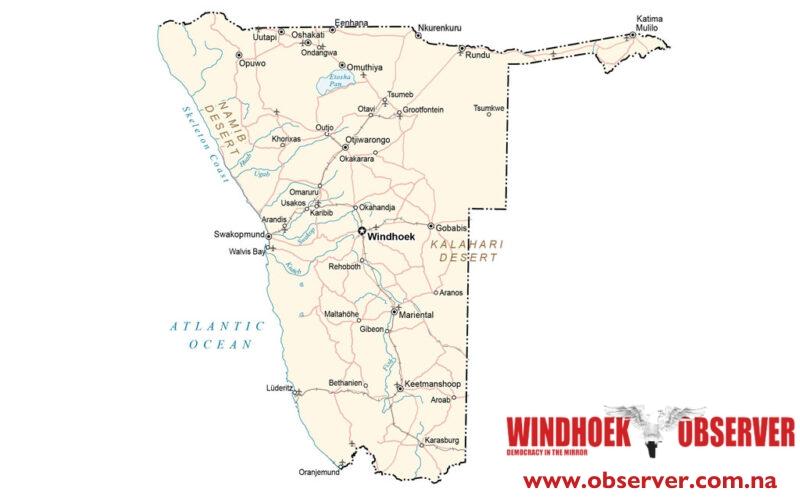Niël Terblanché
The Namibian Boundaries Delimitation and Demarcation Commission, chaired by acting Judge Petrus Unengu, has embarked on a nationwide tour to demonstrate the government’s commitment to accurate and democratic electoral processes.
The commission is currently in the process of conducting consultations and technical assessments in the various regions of Namibia, and in this regard, the government has urged all stakeholders, from community leaders to ordinary citizens, to cooperate and contribute to this essential national endeavour.
The nationwide tour aims to ensure that the upcoming electoral processes are both fair and reflective of the nation’s current state.
The commission’s national journey also aims to assess and potentially redefine the regional and constituency boundaries to better reflect the country’s current demographics and settlement patterns.
According to acting Judge Unengu, the exercise is especially timely because it follows President Nangolo Mbumba’s April directive, which gave the commission a three-month deadline to present its findings.
The Electoral Commission of Namibia will use these findings to inform its voter registration procedures in advance of the upcoming elections, highlighting the commission’s role in bolstering the nation’s democratic foundations.
The commission’s current visit to Omaheke is part of a broader engagement strategy that will include consultations in the Otjozondjupa Region over the next few days.
At the time of announcing the commission’s new members and its mandate, President Mbumba said the work of the commission is crucial for ensuring that electoral boundaries are drawn in a way that truly represents the demographic shifts, particularly given the increasing youth majority within the population.
He said the commission’s members are experts from a variety of disciplines, including law, traditional governance, history, and education, and their job is to provide insights that will direct important policy interventions.
The commission’s findings may include renaming local authorities and adjusting constituency sizes to better align with population and development metrics.
The importance of the commission’s work has been emphasised by various political figures, including Elma Dienda, a PDM parliamentarian, who is on record for saying that the outcomes could significantly influence the country’s political landscape, affecting the performance of political parties in the upcoming elections.
Done
Border delimitation consultation underway amidst election preparations
Niël Terblanché[1]
The Namibian Boundaries Delimitation and Demarcation Commission, chaired by acting Judge Petrus Unengu, has embarked on a nationwide tour to demonstrate the government’s commitment to accurate and democratic electoral processes.
The commission is currently in the process of conducting consultations and technical assessments in the various regions of Namibia, and in this regard, the government has urged all stakeholders, from community leaders to ordinary citizens, to cooperate and contribute to this essential national endeavour.
The nationwide tour aims to ensure that the upcoming electoral processes are both fair and reflective of the nation’s current state.
The commission’s national journey also aims to assess and potentially redefine the regional and constituency boundaries to better reflect the country’s current demographics and settlement patterns.
According to acting Judge Unengu, the exercise is especially timely because it follows President Nangolo Mbumba’s April directive, which gave the commission a three-month deadline to present its findings.
The Electoral Commission of Namibia will use these findings to inform its voter registration procedures in advance of the upcoming elections, highlighting the commission’s role in bolstering the nation’s democratic foundations.
The commission’s current visit to Omaheke is part of a broader engagement strategy that will include consultations in the Otjozondjupa Region over the next few days.
At the time of announcing the commission’s new members and its mandate, President Mbumba said the work of the commission is crucial for ensuring that electoral boundaries are drawn in a way that truly represents the demographic shifts, particularly given the increasing youth majority within the population.
He said the commission’s members are experts from a variety of disciplines, including law, traditional governance, history, and education, and their job is to provide insights that will direct important policy interventions.
The commission’s findings may include renaming local authorities and adjusting constituency sizes to better align with population and development metrics.
The importance of the commission’s work has been emphasised by various political figures, including Elma Dienda, a PDM parliamentarian, who is on record for saying that the outcomes could significantly influence the country’s political landscape, affecting the performance of political parties in the upcoming elections.




